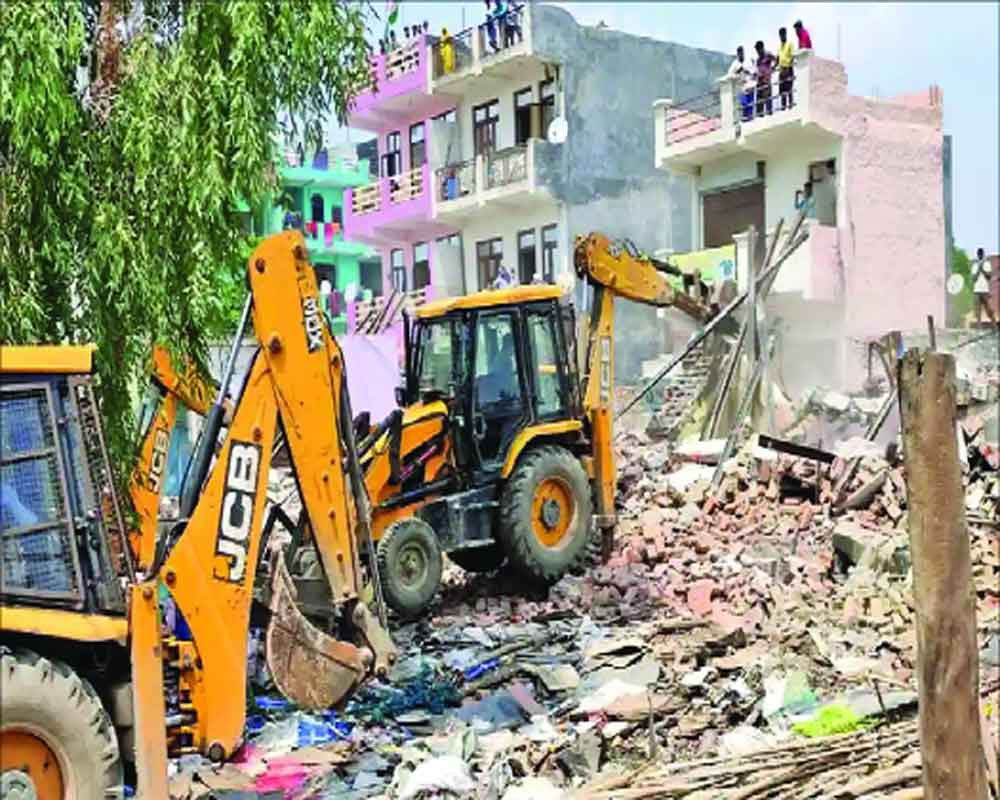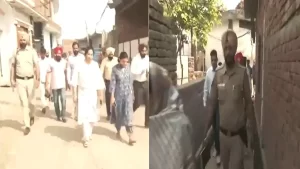
The Supreme Court has issued a temporary halt to the unauthorized demolition of private properties, commonly known as “bulldozer justice,” until October 1, when further arguments will be presented. This practice involves state governments demolishing homes or businesses belonging to individuals accused of criminal activities, often without adherence to proper legal procedures. The court’s decision is viewed as a significant measure against executive overreach associated with these actions.
A bench led by Justice BR Gavai and Justice KV Viswanathan clarified that their ruling would not affect demolitions that have been legally sanctioned. Solicitor General Tushar Mehta, representing the government, expressed concerns that the ruling might interfere with legitimate demolitions.
The court reassured that “the heavens won’t fall” if demolitions are paused until the next hearing, sending a clear message to state authorities to avoid unauthorized actions. The ruling also included a warning against the “grandstanding” and “glorification” of such demolitions, making it explicit that no demolition can occur without the court’s permission before the next hearing.
This ruling is particularly timely, given the upcoming elections in Jammu and Kashmir and Haryana, where the ruling Bharatiya Janata Party (BJP) aims to retain power. The court suggested that the Election Commission might be notified if unauthorized demolitions persist, reflecting concerns about the potential misuse of these actions during election campaigns.
In response to Solicitor General Mehta’s suggestion that the court may have been influenced by a “narrative” opposing these demolitions, the court firmly rejected such notions. It emphasized that any instance of illegal demolition violates the principles of the Indian Constitution.
The court reiterated that its ruling does not extend to the removal of encroachments on public property, such as roads, railway tracks, and water bodies. The focus remains on demolitions linked to criminal allegations, where accusations alone have been used as justification for demolishing homes and businesses.
This is not the first intervention by the court on this matter. Earlier in the month, the court had already warned state governments regarding the legality of such demolitions, emphasizing that involvement in a criminal case cannot justify the destruction of an individual’s property.
The court’s current pause on demolitions aims to establish clear guidelines to prevent arbitrary and illegal actions by state authorities. This ruling is a vital step in addressing concerns over the practice of bulldozer justice, which has been criticized for undermining the legal rights of individuals, particularly those from marginalized communities. The Supreme Court’s intervention underscores the judiciary’s role in checking executive power when it exceeds its authority.






